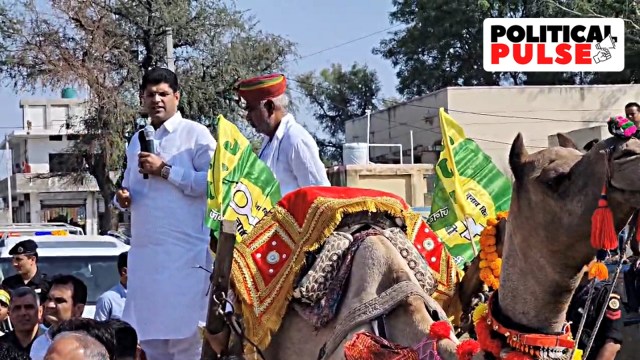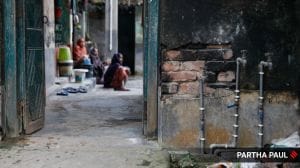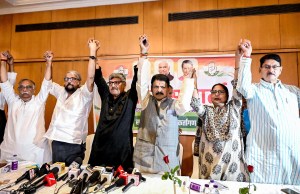Dushyant Chautala’s rural outreach, with camel carts on Rajasthan campaign trail
Dushyant is projecting JJP as party of the poor, farmers and working class. He is citing quota in Haryana for locals, reservation for women in Panchayati Raj institutions, purchase of crops at MSP
 (Express Photo)
(Express Photo) Jannayak Janata Party (JJP) leader Dushyant Chautala is using the Rajasthan Assembly polls to bolster his image of a farmer leader. He is canvassing several constituencies using a camel cart, a powerful symbol and a lifeline in the desert state’s rural communities.
The JJP plans to contest 25-30 of the state’s 200 Assembly seats and has already set up several local offices. On October 19 and 20, Dushyant held roadshows in over 50 villages in Kotputli, Jaipur and Bharatpur constituencies.
As per the 2011 Census, at least 75% of Rajasthan’s population lives in rural areas. The JJP is likely to focus on seven Rajasthan districts – Hanumangarh, Jhunjhunu, Churu, Sikar, Jaipur, Alwar and Bharatpur – that share borders with Haryana. In the 62 constituencies in these districts, the Congress had won 28 and the BJP 21 in the 2018 Assembly polls. However, the JJP is yet to finalise which of these constituencies it will contest.
“It is the first Vidhan Sabha election in Rajasthan after the JJP was constituted and the party will contest with its full strength in at least 25-30 seats. The candidates shall be announced soon,” Dushyant said.
In its Rajasthan campaign, Dushyant is projecting the JJP as the party of the poor, the farmers and the working class. He is banking on his achievements in Haryana – reservations for Haryana locals in private sector jobs, reservation for women in Panchayati Raj institutions, purchase of crops at the minimum support price (MSP), and quick disbursal of crop-loss compensation directly into farmers’ bank accounts – to win over voters in Rajasthan. Dushyant has made similar promises in the poll-bound state.
At his rallies, Dushyant promised farmers in Rajasthan that the bajra crop will also be purchased at the MSP across the state’s mandis, mirroring a similar programme in Haryana. He also announced that farmers will get money directly in their bank accounts within 48-72 hours for their crop produce.
 Dushyant Chautala arrives with Tractor at the Parliament house during Winter session on friday. (Express photo by Prem Nath Pandey)
Dushyant Chautala arrives with Tractor at the Parliament house during Winter session on friday. (Express photo by Prem Nath Pandey)
He also emphasised the importance of having a regional party’s presence in the state Assembly, saying that it would ensure farmers and the poor are represented in policy formation and that MLAs from local communities would ensure the voters’ well-being better than other political parties.
In December 2017, when he was the youngest MP at age 29, he had driven a tractor to Parliament to represent the farming community in his home state of Haryana and advocate for amendments in the Motor Vehicles Act (MVA), which he said was detrimental to farmers.
“I rode the vehicle to protest against tweaking of rules under the (MVA) declaring tractors as mere vehicles and not agricultural vehicles. The change in rules will mean the selling price of the vehicle will go up and farmers will have to pay a toll for using it to transport goods,” he had said.
The JJP, an offshoot of the former Haryana CM Om Prakash Chautala-led Indian National Lok Dal, was constituted by Dushyant and his father Ajay in 2018. Within 10 months of its creation, the JJP contested 87 seats in the 2019 Haryana Assembly polls and won 10. Since the BJP failed to reach the majority mark in the 90-member House on its own, it entered a post-poll alliance with the JJP, elevating Dushyant to the deputy CM’s post.



- 01
- 02
- 03
- 04
- 05




























